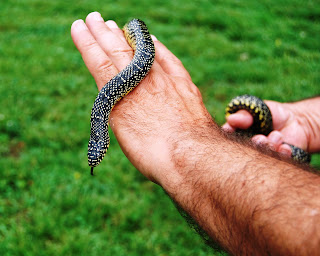Honey bees have the same basic needs as people: a safe place to live and raise offspring, an area to collect food and water, and an environment free of toxins. This was the message that I presented to a receptive group of business leaders in Ripley, Tennessee. Beekeepers understand that bees need a dry hive to protect the bees from the weather. The hive should be elevated to prevent it from flooding and to allow for air to flow around the hive. The hive must have provisions for ventilation. The hive’s honeycombs should be free of chemicals and disease spores. Places for honey bees and other pollinators to find food are becoming increasingly less common, especially in areas of industrial agriculture. The soil is often tilled to the edge of the field leaving no unplowed field margins. The result is the loss of bee forage and nesting area. Monocultural plantings of a single crop often reduce the available forage. Monoculture may lead to lower food quality due to a lack of a diversity of nutrients. Insecticides, pesticides, and herbicides in the environment as well as miticides used by beekeepers kill bees outright or build-up in the beeswax honeycomb of the bee hive. Broad-spectrum insecticides kill every insect present, including pollinators and other beneficial insects. Persistent insecticides remain in the soil for a long time and kill and weaken bees well into the future. Mixing together more than one chemical agent or increasing the strength of insecticide sprays are especially damaging to bees. I encouraged the business leaders to use their influence to help control the use of pesticides in agricultural settings, around homes and gardens, and on golf courses. Many attending were surprised that our entire luncheon was dependent upon insect pollinators with the single exception of the dinner roll.
Today’s photo is a speckled kingsnake, a harmless resident of a Peace Bee Farm bee yard. Snakes are welcomed protectors of bee hives and help control rodents during warm weather.
--Richard





This comment has been removed by a blog administrator.
ReplyDelete